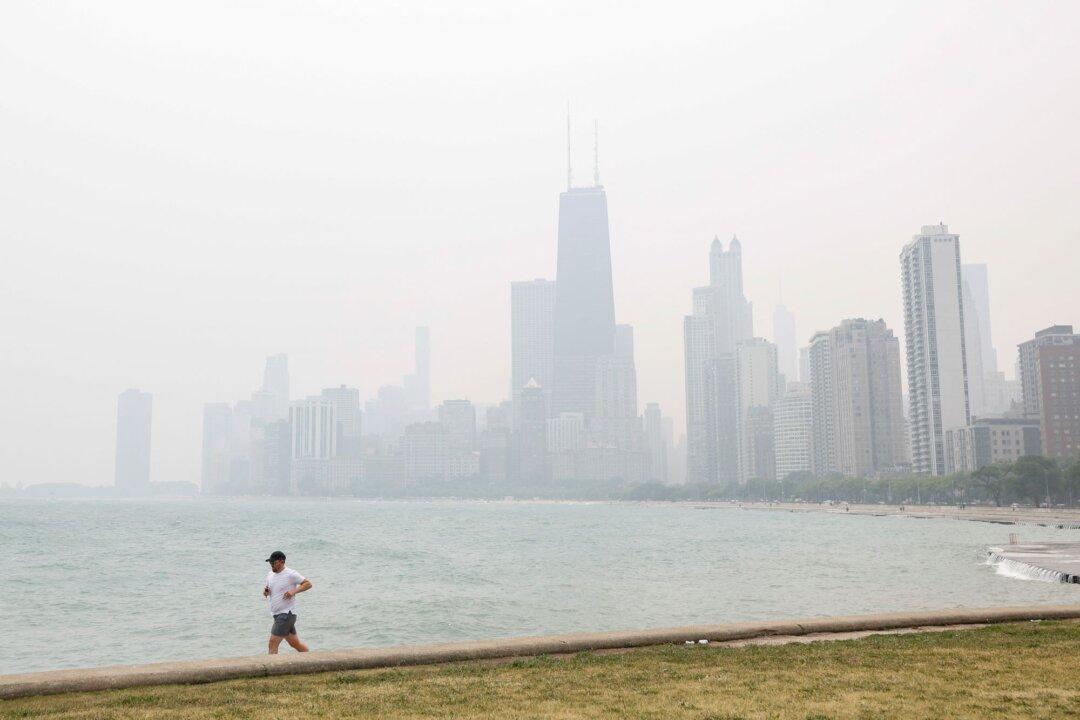Chicago recorded the worst air quality in the world on June 27, triggered by continuing Canadian wildfires, and officials are warning about the health implications posed by the concerning air quality across the U.S. Midwest.
The Air Quality Index in Chicago reached 195 on June 27, according to Swiss air technology company IQAir. Detroit was second at 171, according to IQAir.




